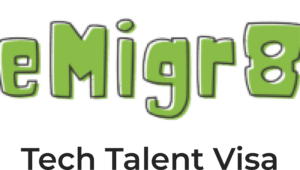How to Build a Strong Global Profile Before Relocation
Most professionals think moving abroad starts with a visa application. Well, it doesn’t.Relocation starts long before that. It starts when you decide to become visible beyond your home country. At eMigr8, we call this becoming a Globally Attractive Talent. Every year, we speak with thousands of engineers, tech professionals, and founders. Many are highly skilled. They build products, lead teams, and solve complex problems. But when they try to move to the UK, US, or Canada, they struggle. The issue is rarely competence. It’s visibility. In your home country, your work speaks for you. Internationally, it doesn’t. To a visa officer or a global hiring manager, you are one profile among thousands.If you want to compete globally, your work must be visible, structured, and backed by evidence. Before you think about relocation paperwork, these are the positioning steps you should be taking aMost people approach relocation hoping they meet the requirements.That mindset is limiting. Global talent pathways such as the UK Global Talent Visa or US O-1 are designed for individuals who can prove impact, leadership, and contribution. So, instead of asking: “Do I qualify?”, you should be asking: “What evidence shows I contribute to a digital economy?”This shift changes everything. It moves you from passive applicant to strategic talent. 2. You Should Build a Public Evidence (Not Just Experience) Your strongest work is often hidden inside company systems such as private repositories, Slack threads, Jira tickets. Visa bodies and global recruiters cannot see that because they evaluate public proof. At eMigr8, we call these Public Artifacts. Examples: These are not side projects but strategic career assets. If your name is searched online, your expertise should be visible. If it isn’t, start building it. 3. You Need to Choose a Clear Niche General titles do not stand out globally. “Software Engineer” competes with millions. “Product Manager” is broad. But, specificity creates authority. For example: For example: A defined niche makes it easier for you to build recognition, contribute meaningfully, and gather targeted evidence because these global endorsement bodies look for clarity of impact which means that a clear niche will help them understand your value immediately. 4. How Do You Demonstrate Leadership Before You Move Abroad? Recognition is not just about personal success. It is about influence. Strong global profiles show contribution to the ecosystem. You can: These activities signal peer recognition and leadership which are important in high-value visa pathways. You do not need to be famous, you only need to be consistent and intentional. 5. Should You Build International Connections Before You Move? Yes. And this is where many professionals wait too long.Global relocation should not feel like starting from zero. If the UK is your target, start engaging with the UK tech ecosystem now. You should also, join relevant communities, participate in discussions, attend virtual events, connect with professionals in your niche so that by the time you eventually relocate, you are already familiar within your ecosystem. 6. Do You Need a Structured Roadmap to Build a Global Profile? Building a global profile takes structure, so without direction, professionals often spend months collecting credentials that do not materially strengthen their visa case. The goal is not to collect certificates but to build the right evidence. At eMigr8, we use AI-powered assessments to generate personalized Tech Roadmaps. These roadmaps identify: This removes guesswork and replaces it with a strategic plan. If you are serious about relocation, clarity is essential, you can start here: 👉 Free Visa Assessment: https://architect.emigr8visa.com So, get your baseline and understand your options because the long-term advantage is that these little processes compound. A write-up can lead to a speaking opportunity. A speaking opportunity can lead to judging. Judging can lead to recognition and finally strengthening your visa profile. Over time, you stop chasing opportunities and start to attract them. That is the eMigr8 approach.We do not treat relocation as paperwork. We treat it as structured global positioning. Your Next Step: If you want to move strategically (not by chance), take action. 1. Check where you stand https://architect.emigr8visa.com 2. Join a serious community of ambitious professionals https://eMigr8.ai 3. Attend a Free Open Day or book clarity coaching https://eMigr8visa.com/techvisa Your passport should not define your ceiling. Your visibility, positioning, and strategy should. Start building your global profile today. :









